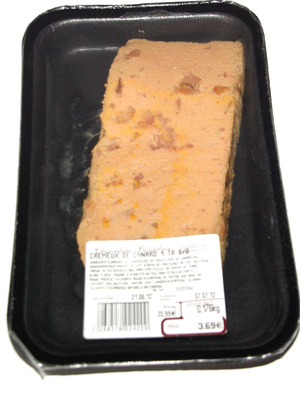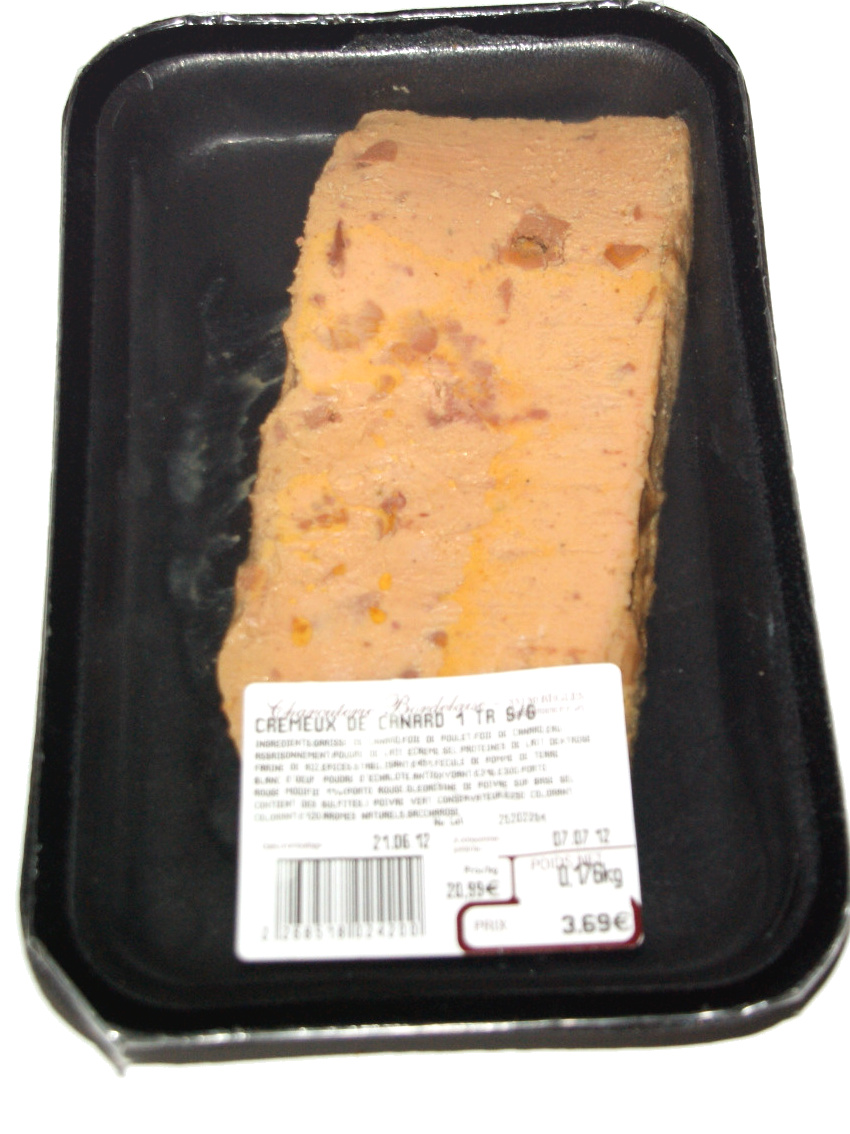Crémeux de Canard - Charcuterie Bordelaise - 176 g
This product page is not complete. You can help to complete it by editing it and adding more data from the photos we have, or by taking more photos using the app for Android or iPhone/iPad. Thank you!
×
Barcode: 2268518024200 (EAN / EAN-13)
Common name: Mousse au foie de volaille (dont canard) - Crémeux de Canard
Quantity: 176 g
Packaging: Plastic, Fresh, Ps-polystyrene, Tray, fr:Film plastique soudé
Brands: Charcuterie Bordelaise
Categories: Meats and their products, Spreads, Meats, Prepared meats, Salted spreads, Savory mousses, fr:Mousses de foies
Manufacturing or processing places: France
Traceability code: FR 33.039.006 CE - Bègles (Gironde, France)
Stores: Simply
Countries where sold: France






